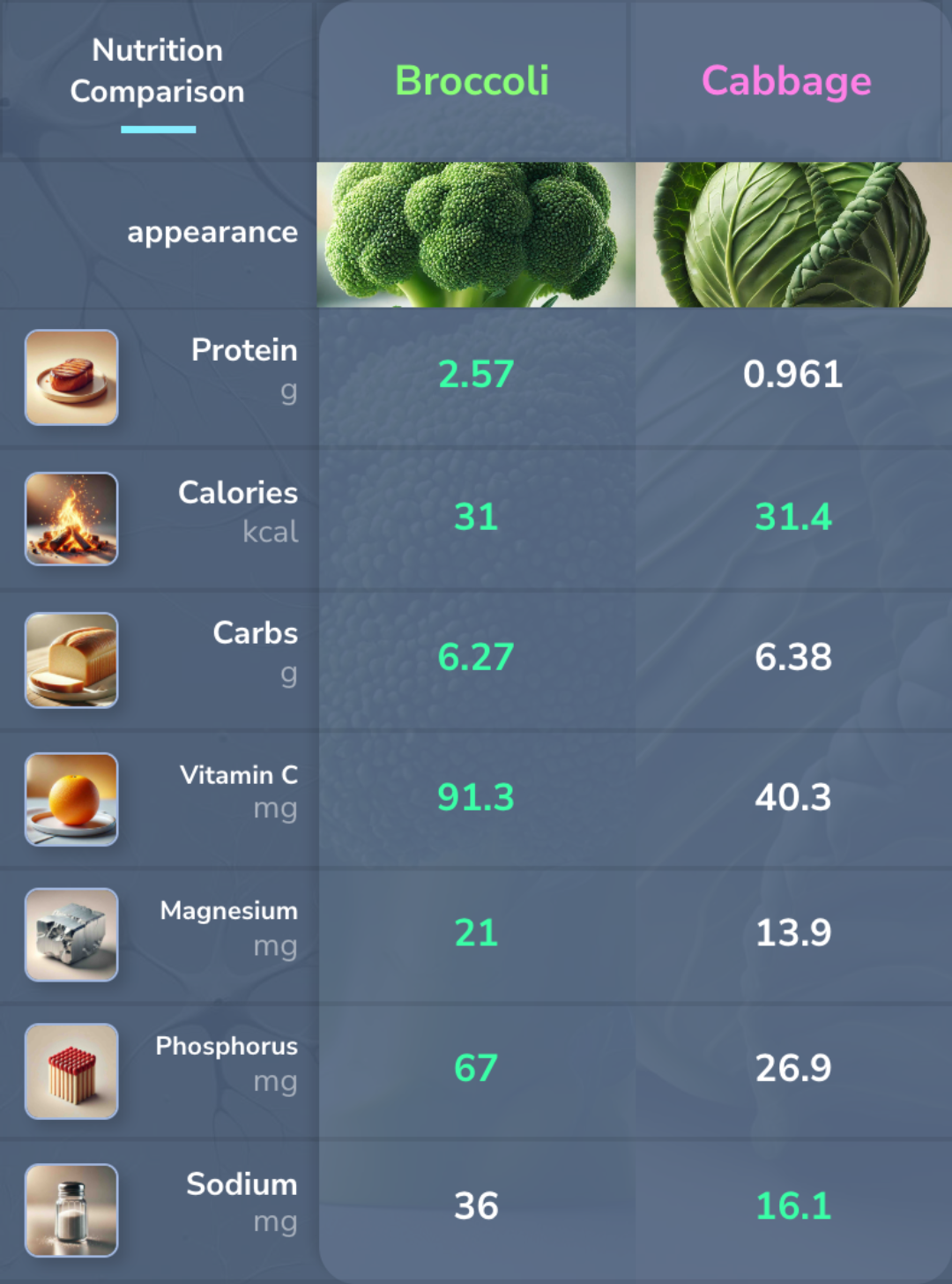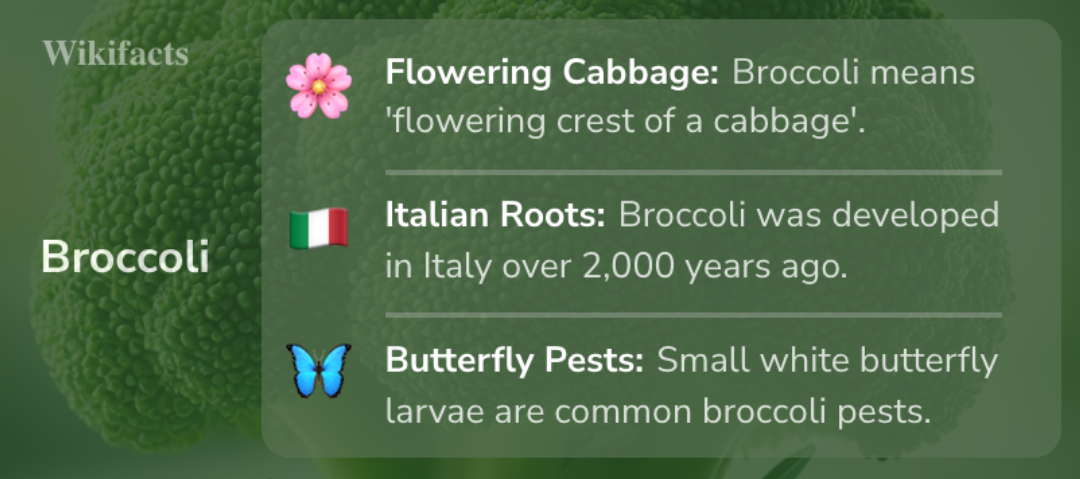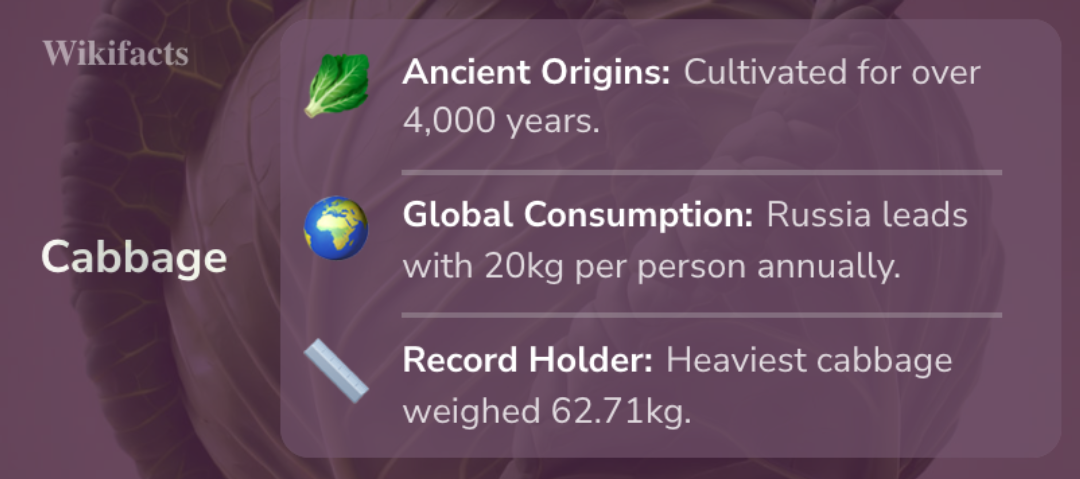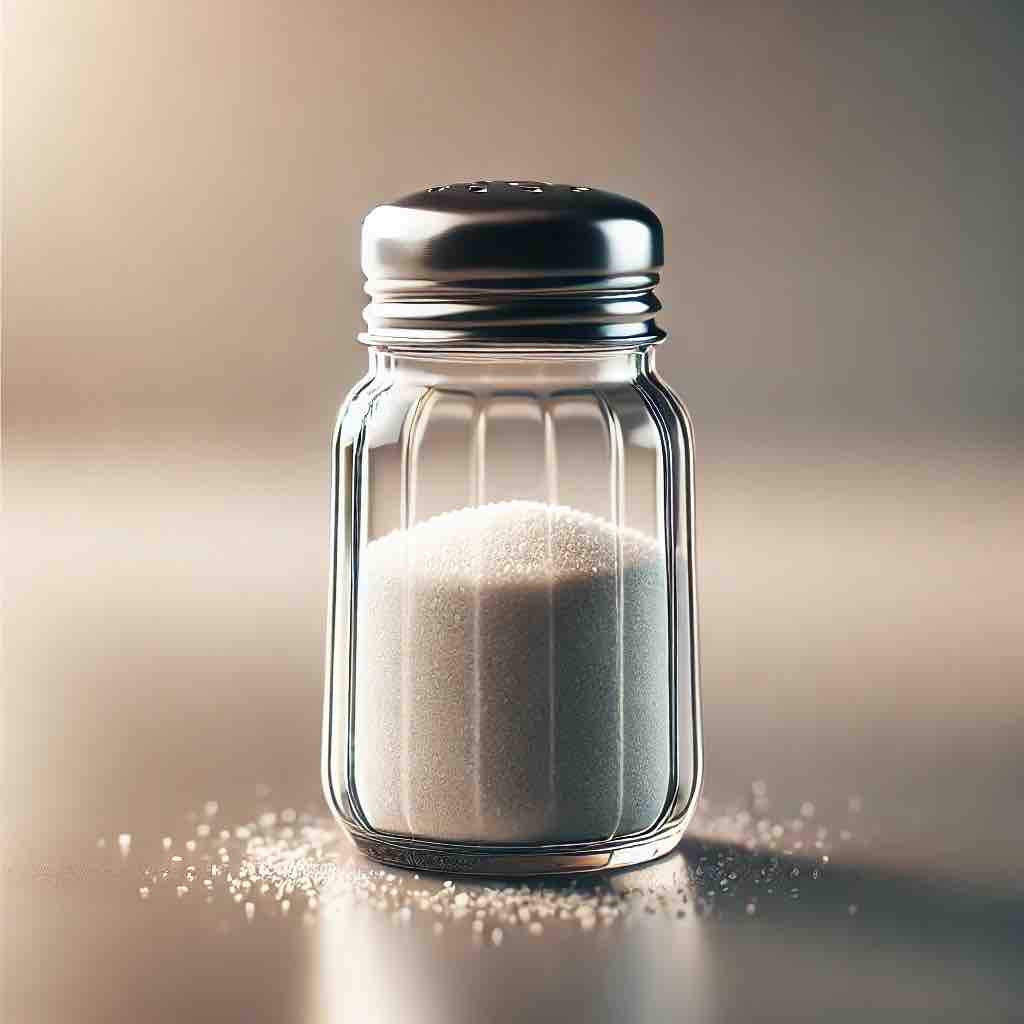Nutrition: Vegetables
Nutrition Comparisons
Broccoli vs. Cabbage
Broccoli outshines cabbage in protein, vitamin C, potassium, magnesium, and phosphorus, making it more nutrient-dense overall. Cabbage, however, has lower sodium, a benefit for those monitoring salt intake. Both are similarly low in calories and carbohydrates, making them excellent choices for healthy diets.

Background:Broccoli

top benefits 👍
💪
Rich in Nutrients:Broccoli is high in vitamins C and K.
🛡️
Cancer-Fighting Compounds:Contains sulforaphane, which may help prevent cancer.
❤️
Heart Health Support:May reduce inflammation and support heart health.
drawbacks 👎
💨
Gas and Bloating:Can cause gas due to high fiber content.
Background:Cabbage

top benefits 👍
🦴
Bone Health Support:Rich in vitamin K, aiding bone strength.
🛡️
Antioxidant-Rich:High in vitamin C, combating cell damage.
💪
Anti-Inflammatory Properties:Contains sulforaphane, reducing inflammation.
drawbacks 👎
💨
Digestive Discomfort:May cause gas due to high fiber and raffinose.

Protein
Broccoli contains 2.57 g of protein per 100 g, significantly more than cabbage, which has 0.961 g. This makes broccoli a better source of protein for muscle repair and growth.

Calories
Broccoli and cabbage both contain roughly 31 kcal per 100 g, making them equally low-calorie options suitable for weight management.

Carbohydrates
Broccoli has slightly fewer carbohydrates (6.27 g per 100 g) compared to cabbage (6.38 g), making it a marginally better option for low-carb diets.

Sodium
Cabbage is lower in sodium (16.1 mg per 100 g) compared to broccoli (36 mg), making it a better choice for those on low-sodium diets.